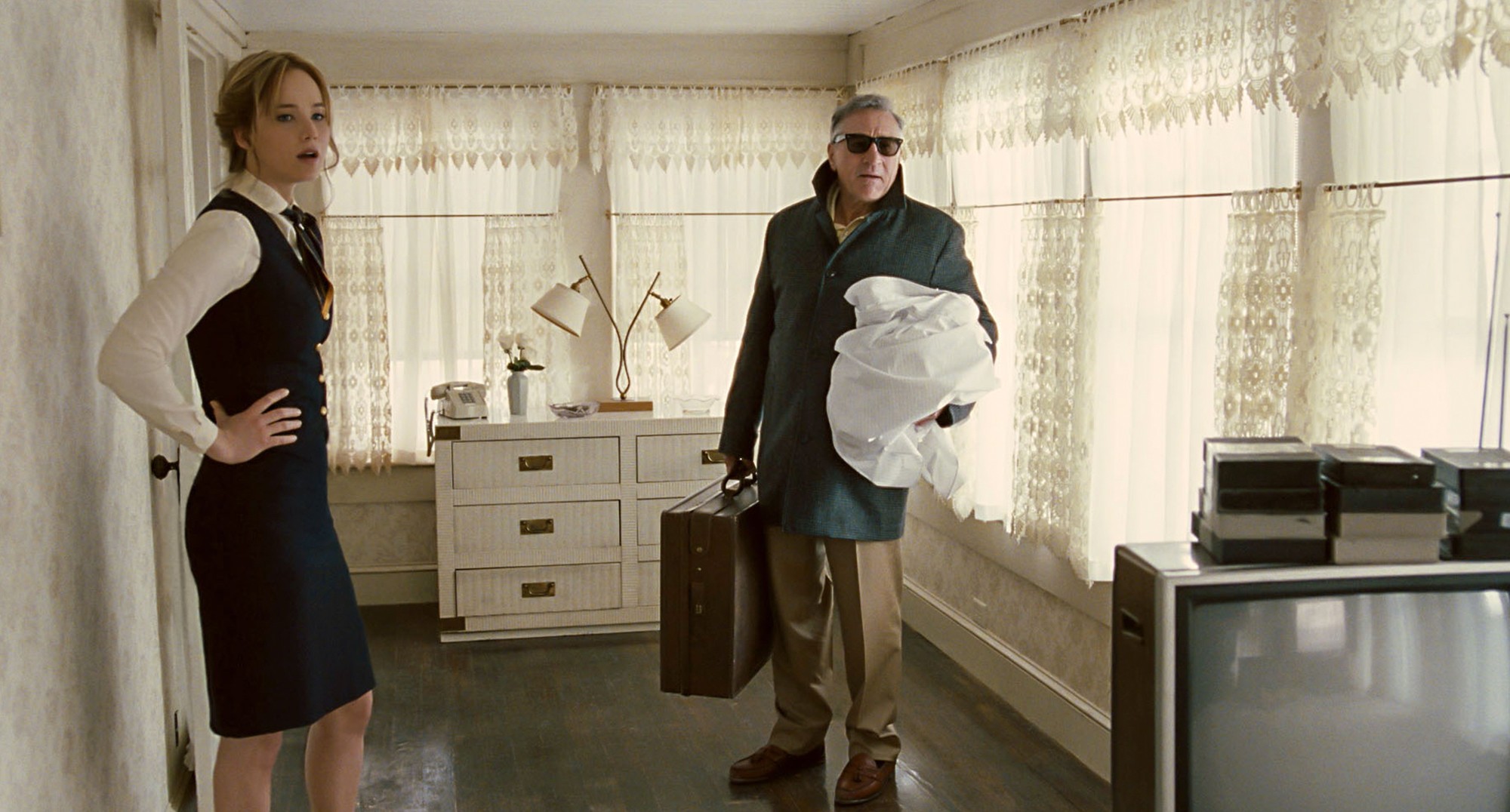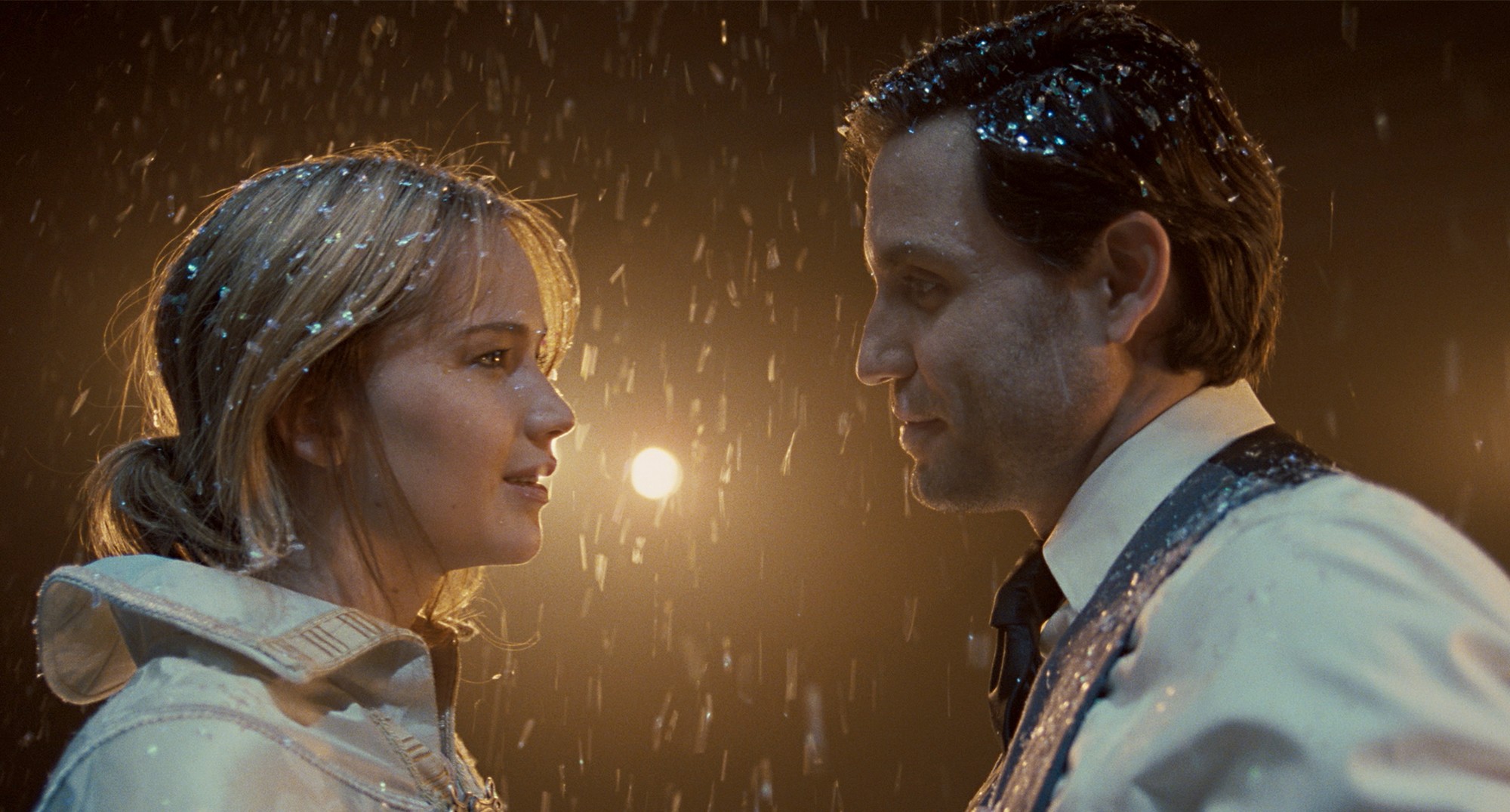
JOY (PG13)
Released By 20th Century FOX
Review By Briana Pugh
With a cast list that looks like the guest list to the Oscars, David O. Russell‘s new movie Joy triumphs just like the name implies. Jennifer Lawrence portrays Joy Mangano, the inventor, entrepreneur, and business woman who created the self-wringing Miracle Mop. She is surrounded and supported (sometimes unsupported) by her father Rudy (Robert De Niro), her step-sister Peggy (Elisabeth Röhm), her ex-husband Tony (Edgar Ramirez), her father’s new girlfriend Trudy (Isabella Rossellini), her grandmother Mimi (Diane Ladd), her mother Terry (Virginia Madsen), her best friend Jackie (Dascha Polanco), and her two kids Christie and Tommy (Aundrea Gadsby, Gia Gadsby and Tomas Elizondo, Zeke Elizondo). All of whom are relying on her to support the family financially and (sometimes) emotionally. When she herself, is just trying to get by.
Tired of the daily, monotonous chores of being a mother and cleaning up after kids (I feel ya sister!) Joy invents what will later be known as the Miracle Mop. A self-wringing mop that contains 300 feet of continuous looped cotton, the most absorbent mop on the market at the time. Her idea is taken to QVC where Joy meets Neil Walker (Bradley Cooper) and she finally has a chance to see her idea take off.

As a writer myself, (even if only a mediocre one) I pay very close attention to story and writing in a movie. Because that’s what interests me the most. Some movies have an only okay story and great everything else, and some movies have only okay everything else and fabulous writing. Joy fits somewhere in between. There are some great scenes, great acting, great writing and moments of near perfection. But there are a few things lacking.
Obviously the story is loosely based on the life of Joy Mangano and according to an article in Time, it was Russell’s intention to develop a fictional character based on her life, not make a “carbon copy” of her. The characters who surround Joy in the film are not all real characters either. Some are only figments of Russell’s imagination. For instance, Peggy, Joy’s half-sister is someone who Russell made up for the movie. Which perhaps explains why her character is, at times, two-dimensional. Being that she was fictional and only there to further the story.

Although the story was solid, it felt like it needed just one more thing to make it a little stronger, something to give it the last, knock-out punch. It was like it had a bit of an identity crisis, it wanted to be so much but it couldn’t decide what. Perhaps Russell should have taken a bit more running time to figure out what that identity was exactly. Maybe it was trying too hard to be something it wasn’t.
Continually, the movie halfheartedly pushes the feminist agenda that “women don’t need men to be successful,” and that kind of stuff always leaves me a little cold. If this was supposed to be a tale of a generation of women who either overcome their challenges or succumb to them, then we should have learned more about the grandmother. The mother obviously spends her life watching life instead of living it. Not a real version of life either, an over-dramatized version. But we learn little (if anything at all) about the grandmother’s life. Which is why I would say it’s only “halfhearted” because if it was an intentional agenda, it was done very poorly.
However, a lot of these faults of the story can be easily overlooked, when leveled against the pros of the film. Jennifer Lawrence does a great job and is believable in the role of Joy and frankly everyone performed their parts exceptionally. But the greatest part of this movie wasn’t just the acting, it was the message that Russell was trying to convey. To me, this movie isn’t about the strength of women or how great they are, to me this movie was about perseverance and the strength of the human spirit, and I love that. Russell didn’t want a direct biography of Mangano’s life but a loose interpretation of the struggle she went through. I’m not sure of the exact reason, but I would like to believe that he did it to send the message that success is possible for anyone—this isn’t just one success story from someone successful, but it’s a success story that can happen to anyone, as long as they persevere. And Mangano signed off on the script, not because it was a full accurate portrayal of her life, but because she believed in the message that David O. Russell was sending.
This is a beautifully crafted film because it leaves you with a positive feeling that difficult things can be overcome and that life can eventually work out. It may have it’s faults, like many movies, but it’s still worth its weight in cinematic silver. It’s a simple message conveyed in a stylish and clever way. As we were leaving the theater, I heard the viewers in front of me say “I feel like I can do anything now,” and that is what this movie is all about, faults and all—Joy will give you joy.




